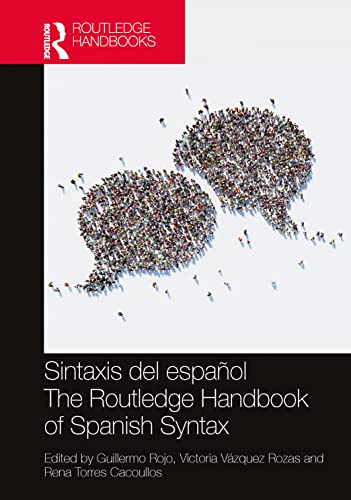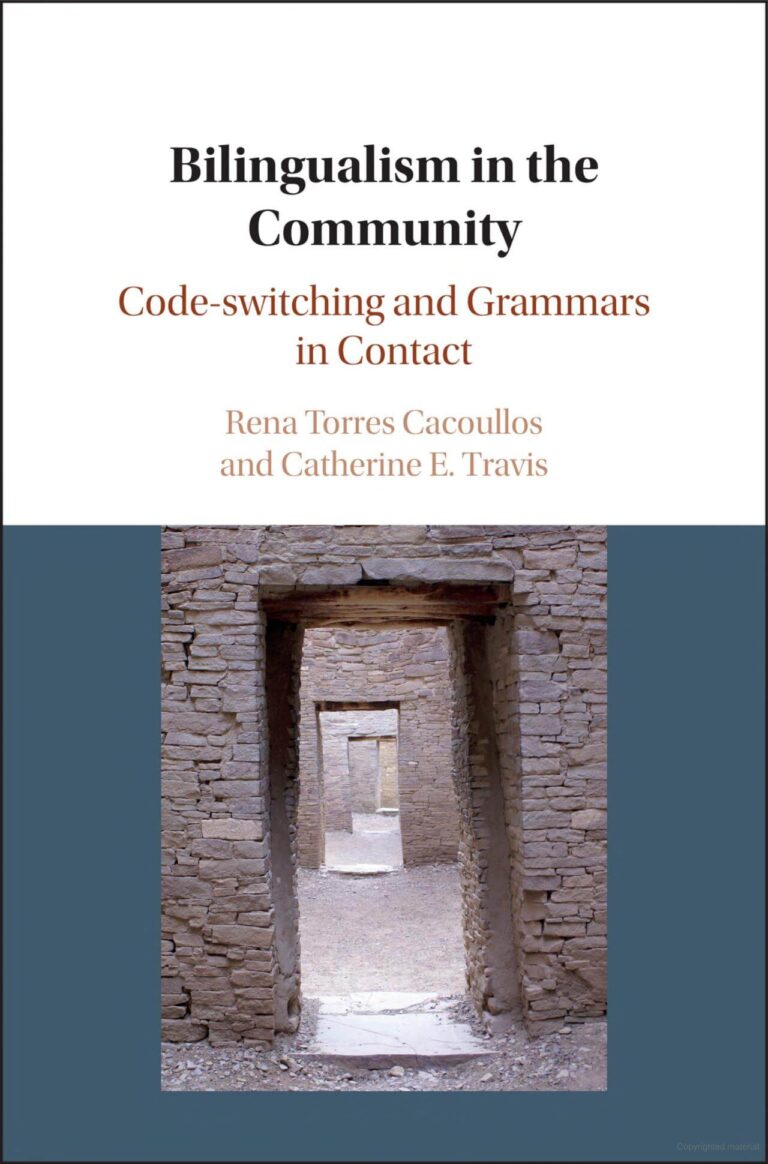Liberal Arts Professor of Spanish and Linguistics
Acting Head July 1, 2024-June 30, 2025
249 Burrowes
Curriculum Vitae:
Websites:

Education:
PhD, Hispanic Linguistics, University of New Mexico
Research Interests:
Language variation and change, Grammaticalization, Language contact
Biography:
Rena Torres Cacoullos is Professor of Spanish and Linguistics. Her work is from a variationist usage-based perspective, based on the quantitative analysis of natural language production data, spoken and written, in varieties of Spanish, English, and Greek. She serves as editor of Language Variation and Change. Her work on bilingual code-switching has been funded by the National Science Foundation.
Pronouns:
- she/her
Recent Publications:
- Rebecca Pattichis, Dora LaCasse, Sonya Trawick, and Rena Torres Cacoullos. 2023. Code-Switching Metrics Using Intonation Units. 2023 Conference on Empirical Methods in Natural Language Processing. Association for Computational Linguistics.
- Torres Cacoullos, R. & Vélez Avilés, J. 2023. Mixing adjectives: A variable equivalence hypothesis for bilingual word order conflicts. Linguistic Approaches to Bilingualism.pdf
-
LaCasse, D. & Torres Cacoullos, R. 2023. Simplification in bilinguals’ parallel structures? Spanish and English main-and-complement clauses. Mutual Influence in Situations of Spanish Language Contact in the Americas, M. Waltermire & K. Bove (eds)
Publications

Sintaxis del español / The Routledge Handbook of Spanish Syntax
- Editor(s): Guillermo Rojo, Victoria Vázquez Rozas, Rena Torres Cacoullos
About the Book:
El volumen Sintaxis del español/The Routledge Handbook of Spanish Syntax proporciona una visión general de los temas fundamentales de la sintaxis del español, basada en datos extraídos de corpus textuales, sensible a los fenómenos de variación y conectada con otros componentes de la lengua. La obra, escrita en español, reúne perspectivas teóricas diversas, elaboradas por un grupo internacional de lingüistas. Está dividida en seis partes y comprende 45 capítulos centrados en cuestiones teóricas, cláusulas, oraciones y estructuras supraoracionales, categorías verbales, frases y clases de palabras, variación y cambio sintácticos, así como acercamientos computacionales y sus diferentes aplicaciones. El volumen constituye una referencia fundamental para los investigadores al tiempo que proporciona una introducción accesible para estudiantes de la lengua y la lingüística españolas. Sintaxis del español / The Routledge Handbook of Spanish Syntax provides a comprehensive overview of topics in Spanish syntax, drawing on corpus-based data, incorporating variation, and connecting with other aspects of language. Written in Spanish, the volume brings together diverse theoretical perspectives from an international group of scholars. Divided into six parts, the book comprises 45 chapters on theoretical perspectives, clauses, sentences and (supra)sentential syntax, verb categories, phrases and word classes, syntactic variation and change, and computational approaches and their applications. This handbook is an essential reference for scholars and an accessible introduction for students of Spanish language and linguistics.
El volumen Sintaxis del español/The Routledge Handbook of Spanish Syntax proporciona una visión general de los temas fundamentales de la sintaxis del español, basada en datos extraídos de corpus textuales, sensible a los fenómenos de variación y conectada con otros componentes de la lengua. La obra, escrita en español, reúne perspectivas teóricas diversas, elaboradas por un grupo internacional de lingüistas. Está dividida en seis partes y comprende 45 capítulos centrados en cuestiones teóricas, cláusulas, oraciones y estructuras supraoracionales, categorías verbales, frases y clases de palabras, variación y cambio sintácticos, así como acercamientos computacionales y sus diferentes aplicaciones. El volumen constituye una referencia fundamental para los investigadores al tiempo que proporciona una introducción accesible para estudiantes de la lengua y la lingüística españolas. Sintaxis del español / The Routledge Handbook of Spanish Syntax provides a comprehensive overview of topics in Spanish syntax, drawing on corpus-based data, incorporating variation, and connecting with other aspects of language. Written in Spanish, the volume brings together diverse theoretical perspectives from an international group of scholars. Divided into six parts, the book comprises 45 chapters on theoretical perspectives, clauses, sentences and (supra)sentential syntax, verb categories, phrases and word classes, syntactic variation and change, and computational approaches and their applications. This handbook is an essential reference for scholars and an accessible introduction for students of Spanish language and linguistics.
Read More

Bilingualism in the Community: Code-switching and Grammars in Contact
- Author(s): Rena Torres Cacoullos
About the Book:
Does the use of two languages by bilinguals inevitably bring about grammatical change? Does switching between languages serve as a catalyst in such change? It is widely held that linguistic code-switching inherently promotes grammatical convergence – languages becoming more similar to each other through contact; evidence for this, however, remains elusive. A model of how to study language contact scientifically, Bilingualism in the Community highlights variation patterns in speech, using a new bilingual corpus of English and Spanish spontaneously produced by the same speakers. Putting forward quantitative diagnostics of grammatical similarity, it shows how bilinguals’ two languages differ from each other, aligning with their respective monolingual benchmarks. The authors argue that grammatical change through contact is far from a foregone conclusion in bilingual communities, where speakers are adept at keeping their languages together, yet separate. The book is compelling reading for anyone interested in bilingualism and its importance in society.
Does the use of two languages by bilinguals inevitably bring about grammatical change? Does switching between languages serve as a catalyst in such change? It is widely held that linguistic code-switching inherently promotes grammatical convergence – languages becoming more similar to each other through contact; evidence for this, however, remains elusive. A model of how to study language contact scientifically, Bilingualism in the Community highlights variation patterns in speech, using a new bilingual corpus of English and Spanish spontaneously produced by the same speakers. Putting forward quantitative diagnostics of grammatical similarity, it shows how bilinguals’ two languages differ from each other, aligning with their respective monolingual benchmarks. The authors argue that grammatical change through contact is far from a foregone conclusion in bilingual communities, where speakers are adept at keeping their languages together, yet separate. The book is compelling reading for anyone interested in bilingualism and its importance in society.
Read More

International Journal of Bilingualism, Special Issue: Gauging convergence on the ground: Code-switching in the community
- Author(s): Rena Torres Cacoullos
- Publication Date: 2015
- Website: https://journals.sagepub.com/toc/ijb/19/4
Read More

Linguistic Variation: Confronting Fact and Theory
- Author(s): Rena Torres Cacoullos
About the Book:
Linguistic Variation: Confronting Fact and Theory honors Shana Poplack in bringing together contributions from leading scholars in language variation and change. The book demonstrates how variationist methodology can be applied to the study of linguistic structures and processes. It introduces readers to variation theory, while also providing an overview of current debates on the linguistic, cognitive and sociocultural factors involved in linguistic patterning. With its coverage of a diverse range of language varieties and linguistic problems, this book offers new quantitative analyses of actual language production and processing from both top experts and emerging scholars, and presents students and practitioners with theoretical frameworks to meaningfully engage in accountable research practice.
Linguistic Variation: Confronting Fact and Theory honors Shana Poplack in bringing together contributions from leading scholars in language variation and change. The book demonstrates how variationist methodology can be applied to the study of linguistic structures and processes. It introduces readers to variation theory, while also providing an overview of current debates on the linguistic, cognitive and sociocultural factors involved in linguistic patterning. With its coverage of a diverse range of language varieties and linguistic problems, this book offers new quantitative analyses of actual language production and processing from both top experts and emerging scholars, and presents students and practitioners with theoretical frameworks to meaningfully engage in accountable research practice.
Read More

Grammaticization, Synchronic Variation, and Language Contact: A study of Spanish progressive -ndo constructions
- Author(s): Rena Torres Cacoullos
- Publication Date: 2000
- Website: https://benjamins.com/catalog/slcs.52
About the Book:
This study of Old Spanish and present-day Mexico and New Mexico data develops a grammaticization account of variation in progressive constructions. Diachronic changes in cooccurrence patterns show that grammaticization involves reductive change driven by frequency increases. Formal reduction results in the emergence of auxilliary-plus-gerund sequences as fused units. Semantically, the constructions originate as spatial expressions; their grammaticization involves gradual loss of locative features of meaning. Semantic generalization among parallel evolutionary paths results in the competition among different constructions in the domain of progressive aspect. Patterns of synchronic variation follow from both the retention of meaning differences and the routinization of frequent collocations, as well as sociolinguistic factors. Register considerations turn out to be crucial in evaluating the effects of language contact. Purported changes in Spanish — English bilingual varieties are largely a feature of oral, informal language rather than a manifestation of convergence.
This study of Old Spanish and present-day Mexico and New Mexico data develops a grammaticization account of variation in progressive constructions. Diachronic changes in cooccurrence patterns show that grammaticization involves reductive change driven by frequency increases. Formal reduction results in the emergence of auxilliary-plus-gerund sequences as fused units. Semantically, the constructions originate as spatial expressions; their grammaticization involves gradual loss of locative features of meaning. Semantic generalization among parallel evolutionary paths results in the competition among different constructions in the domain of progressive aspect. Patterns of synchronic variation follow from both the retention of meaning differences and the routinization of frequent collocations, as well as sociolinguistic factors. Register considerations turn out to be crucial in evaluating the effects of language contact. Purported changes in Spanish — English bilingual varieties are largely a feature of oral, informal language rather than a manifestation of convergence.
Read More